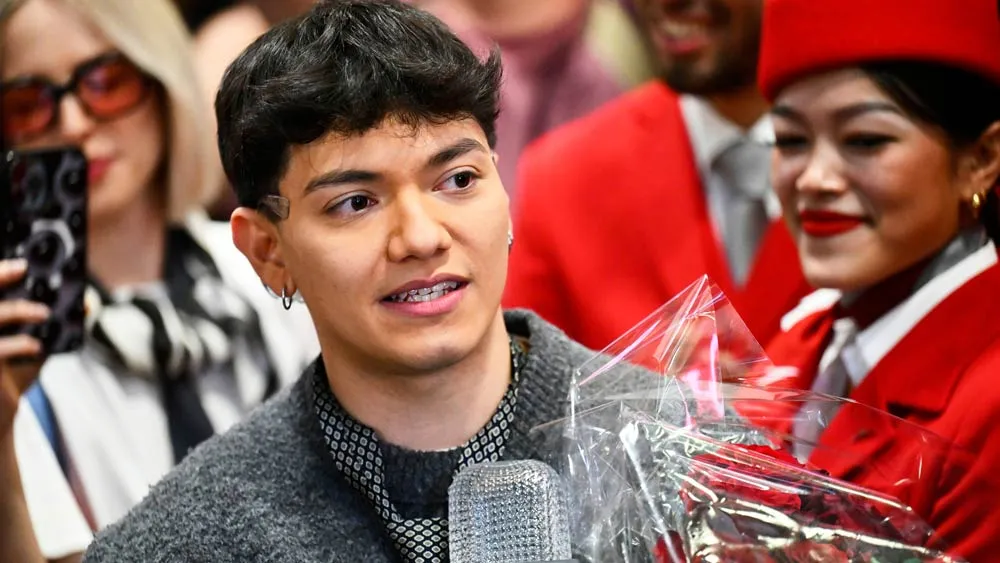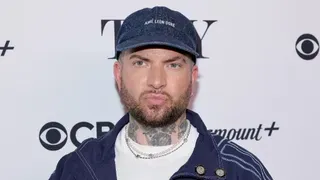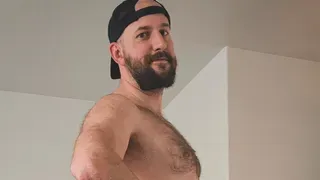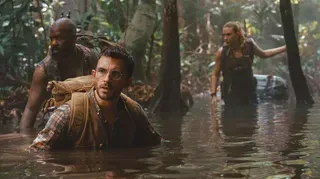February 13, 2021
LGBTQ, Others Talk about Youth Suicide in MTV Documentary
Lynn Elber READ TIME: 3 MIN.
"Each and Every Day" represents studies in courage, both in life and in the MTV documentary about young people and suicide.
In frank and revelatory conversations, nine survivors recount what took them to the brink and how they fought, and continue to fight, to keep claim on themselves and their right to live.
With suicides by young people already on the rise in recent years and the relentless pandemic piling on pressure, a film giving voice to those who attempted or considered suicide takes on more urgency. It airs commercial-free at 9 p.m. EST Tuesday on MTV.
One young person, a college student named Hannah, didn't hesitate when she was invited to be part of the project from director Alexandra Shiva and executive producer Sheila Nevins. (The last names of the participants were omitted from the documentary.)
"It was an immediate 'yes,'" Hannah said in an interview. "I need to do this, I need to take this opportunity to tell my story. Hopefully, kids and people out there who watch will listen to my story. Hopefully, they see that I overcame so many obstacles and they can, too."
She emphasized what others in the film say: It's critical to realize you can't go it alone.
"I was struggling really badly and I didn't reach out for help, and not reaching out for help almost killed me," said Hannah. "I really want them to see what not to do."
Family and friends also have a crucial role, Shiva said.
"If you think someone is thinking about suicide, ask them. Talking about it isn't going to put someone more at risk," she said.
According to a September 2020 report released by the Centers for Disease Control and Prevention, the suicide rate nationally among people age 10 to 24 increased 57.4% from 2007 to 2018, from 6.8 per 100,000 in 2007 to 10.7 in 2018. By comparison, the report said, the rate had been statistically stable from 2000 to 2007.
The pandemic appears to be further undermining mental health in America, with young adults aged 18 to 24 among the groups most prone to thoughts of suicide, according to a survey released last August by the CDC.
"Each and Every Day" doesn't dwell on statistics or experts, instead giving the floor to the participants and their individual stories. There's also a group Zoom discussion that lets the young adults connect with each other and, indirectly, viewers.
With quiet, undramatic honesty, they talk about how long they've battled depression – many since middle school – and what it took for them to realize they couldn't survive without support. For those of color, skeptical community attitudes about mental health treatment and the pressure of expectations are cited as further burdens.
"I grew up with this idea of always having to be perfect, always having to portray Black excellence," Hannah said.
Latino and Indian American participants said they've dealt with the prejudice that psychological issues are shameful, while LGBTQ participants share their own burdens. Others in the film prove that no one is exempt, including those who come from happy homes or affluence or avoid facing ethnic or other bias.
The filmmakers wanted to ensure "we had enough of a variety of experience so that if someone turns on MTV, they don't feel like they're not being represented. They can actually see themselves in someone," Shiva said. The film also will be available on mtv.com and the MTV app, and later on Pluto TV.
An effort also was made to include the widely different therapies, some including medication and others not, that participants had found valuable.
The Jed Foundation, which aims to foster emotional health and prevent suicide among teens and young adults, was a partner with MTV Documentary Films on the project and was among the groups that helped Shiva and producer Lindsey Megrue find participants.
The foundation's Donna Satow said she admires the brave candor of those in "Each and Every Day," and believes they will carry weight with peers who see the film. She and her husband, Phil, created the foundation after losing their youngest son, Jed, to suicide in 1998.
"So many young people suffer in silence. They really do not want to speak up about these feelings," Donna Satow said. "So when they see their own age group speak up and speak up in a language they actually speak and understand, it is powerful and it really moves the conversation to the next step."






